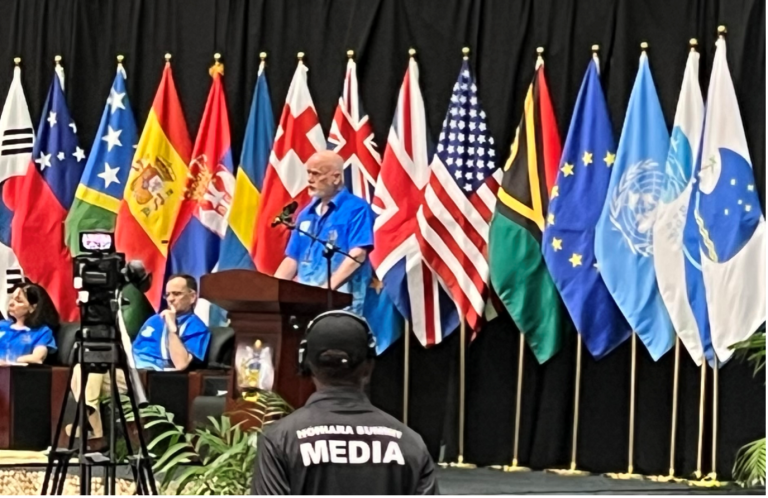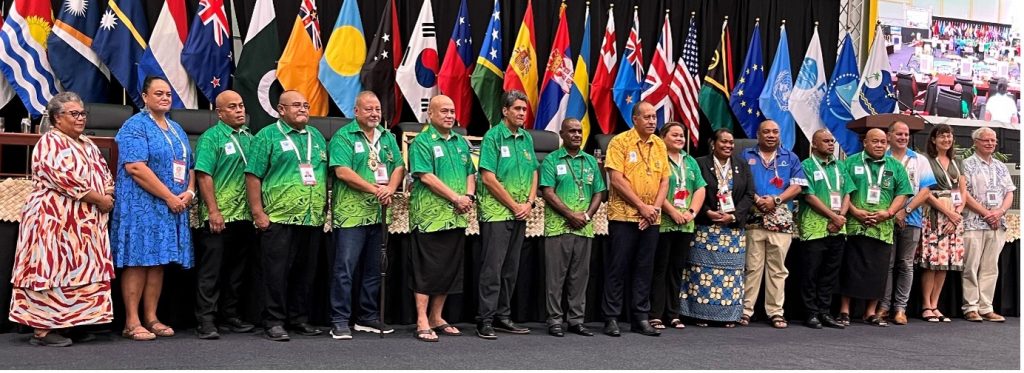By Kamal Azmi
I have had a few days to digest the Honiara Summit, which I attended on 24-27 February in Honiara, the capital of Solomon Islands. Over 300 delegates packed the impressive (but warm) Friendship Hall for three days to discuss progress towards SDG 14 (Life Below Water), Target 14.4, on sustainable fisheries. It also managed to narrowly avoid its own tragedy of the commons (more on that later).
|
Target 14.4 By 2020, effectively regulate harvesting and end overfishing, illegal, unreported and unregulated fishing and destructive fishing practices and implement science-based management plans, in order to restore fish stocks in the shortest time feasible, at least to levels that can produce maximum sustainable yield as determined by their biological characteristics |
While most of the event covered familiar ground – sustainability of fish stocks, climate change, illegal, unreported and unregulated fishing, monitoring control and surveillance and, of course, the importance of fisheries and healthy oceans to the peoples of the Pacific – the aim was clearly to build momentum toward the third UN Oceans Conference, which will be held in Nice in June.
The Summit brought together fisheries experts and stakeholders, including five heads of state/government and 10 ministers, from the region and the world. It was jointly hosted by the Solomon Islands Government and the Pacific Islands Forum Fisheries Agency (FFA), in close collaboration with the FAO and Ambassador Peter Thompson, the UN Secretary General’s Special Envoy on Oceans.

Pacific Island countries are rightly proud of their achievements in sustainable fisheries management and the benefits to be gained through cooperation. As large ocean states they are the biggest contributor to global tuna catches, which in turn bring vital revenue and employment to their economies and communities. This also makes them vulnerable to threats such as climate change and IUU fishing.
As small island developing states, they recognise that they need to speak loudly and together to ensure their voices are heard and their interests are protected. Climate change, for instance, is predicted to have a substantial impact on the distribution of tuna stocks over the coming decades. And impacts are already being seen on coastal stocks, particularly in reef fisheries, which are essential sources of food security for Pacific Island communities.
Speaking of climate change, the Summit followed hot on the heels of the Green Climate Fund’s (GCF) announcement of a US$107 million grant for climate change adaptation for tuna-dependent Pacific Island communities and economies. The grant will support the development of improved models to give advanced warning of climate impacts on tuna, and the enhancement of access to tuna for coastal and urban communities.

Yes, there were a lot of familiar platitudes but I think the Summit achieved its goal of amplifying Pacific voices and Pacific interests as we head toward the third UN Oceans Conference. A comprehensive outcomes statement captured the key points of discussion but there will also be a Leaders’ Communique of a more political nature, still to be released.
There was a lot of love in the room, for each other but also for the soft serve ice cream on offer in the meals area. It was a nice touch during a hot few days in Honiara. But when supplies ran out on day 2, I could see the tragedy of the commons unfolding before my eyes. Thankfully, participants’ excitement calmed by day 3 and we were back to a sustainable flow of the cold stuff. It seems everyone wins with cooperation.